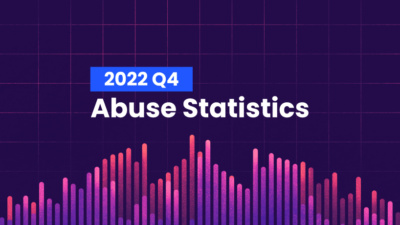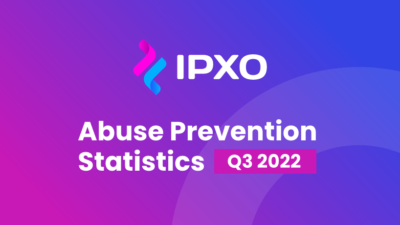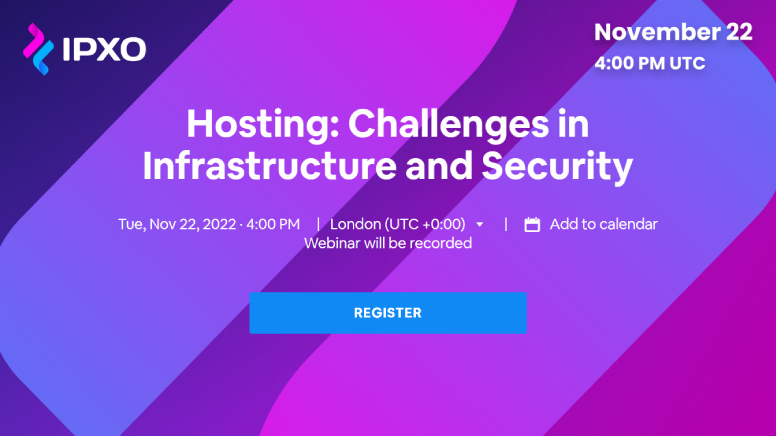IPXO Webinar: IP Address Reputation and Management
5 min read
27 September 2022
Agnė Srėbaliūtė
What is IP address reputation, and why is it important? What are the greatest challenges related to IP address management? What changes to IP reputation and management can we expect in the future? These were the key questions answered during a recent IPXO webinar.

About the author
Agnė is a Technical Content Writer at IPXO. For more than 15 years she has been molding her skills in various fields, including PR copywriting, SEO copywriting and creative copywriting. Her lifestyle is based on continuous learning through numerous areas of interest, leisure activities and travelling. Addictions? Hiking and coffee.
Table of contents
Related reading

7 February 2023 •
Original Insights
2022 Q4 Abuse Statistics: Spam Remains the #1 Threat to IP Addresses
Discover how IPXO Marketplace abuse professionals handled IP address abuse during the last quarter of 2022.
Read more
22 November 2022 •
IPv4 for Business,
Original Insights
The 6th RIR Podcast: IPv4 Depletion & Possible Solutions
Why did we run out of IPv4? How can we alleviate the problem? Is IP leasing the answer? Here's your recap of the latest The 6th RIR Podcast episode.
Read more
25 October 2022 •
IP Security,
Original Insights
Infographic: IPXO 2022 Q3 Abuse Prevention Statistics
Your comprehensive view of the IP address abuse handling at the IPXO Marketplace during the third quarter of 2022.
Read moreSubscribe to the IPXO email and don’t miss any news!


